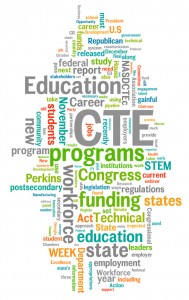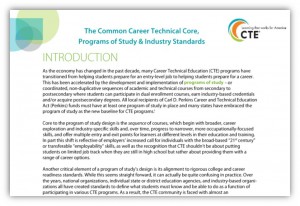Strategies for Financing CTE
January 15, 2015, 2 – 3 p.m. ET
Authors of the new report, “State Strategies for Financing CTE,†will unpack the study’s important findings. Co-hosted by the National Conference of State Legislatures, this webinar will explore the ways in which states are financing CTE at the secondary and post-secondary levels using state and federal funds, including a closer look at performance-based funding approaches. For an overview of the report, check out our Learning that Works blog.
Speakers:
- Steve Klein — Director, Center for Career & Adult Education and Workforce Development, RTI International/Principal Investigator for the National Center for Innovation in Career and Technical Education
- Laura Rasmussen Foster — Program Director, RTI International/National Center for Innovation in Career and Technical Education
- Suzanne Hultin — Policy Specialist, Education Program, National Conference of State Legislatures
- Andrea Zimmermann — State Policy Associate, NASDCTEc
2014 State CTE Policy Review
February 5, 2015, 3 – 4 p.m. ET
States are increasingly looking to CTE as a means to help close the skills gap and boost the number of people with a postsecondary credential. Join us as we step through the major state policy trends affecting CTE from 2014 including new laws, executive actions and regulatory activity. This webinar will coincide with the release of the second annual “2014 State CTE Policy Review,” a joint publication from ACTE and NASDCTEc.
Speakers:
- Catherine Imperatore, Research Manager, Association for Career and Technical Education
- Andrea Zimmermann, State Policy Associate, National Association of State Directors of Career Technical Education Consortium
Employer Engagement: State Perspectives
February 10, 2015, 2 – 3 p.m. ET
Join us on February 10th from 2 – 3 PM ET to take an in-depth look at how specific states and employers inform, align and enhance their CTE systems at the secondary and postsecondary levels.
Speakers:
- Dr. Phil Cleveland, Alabama State Director of CTE and Workforce Development
- Dr. Blake Flanders, Vice President of Workforce Development, Kansas Board of Regents
- Andrea Zimmermann, State Policy Associate, NASDCTEc
- Steve Voytek, Government Relations Manager, NASDCTEc
Katie Fitzgerald, Communications Associate




